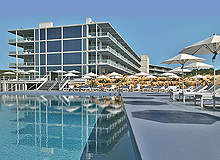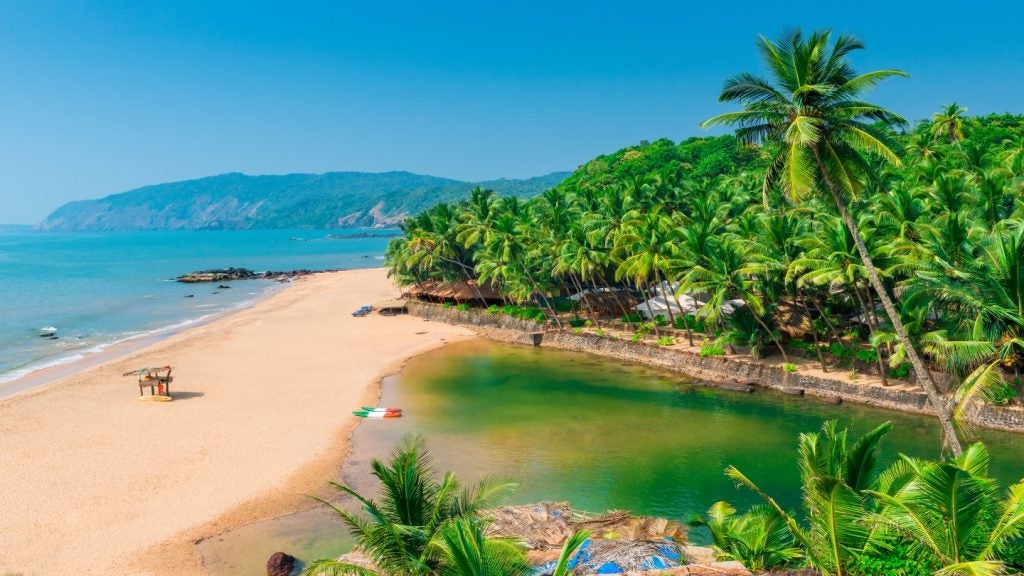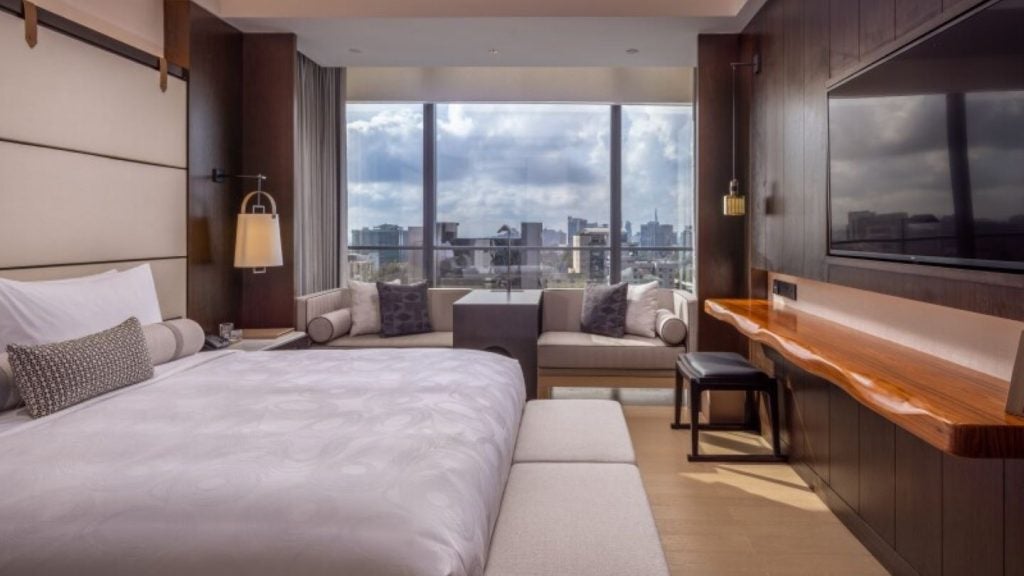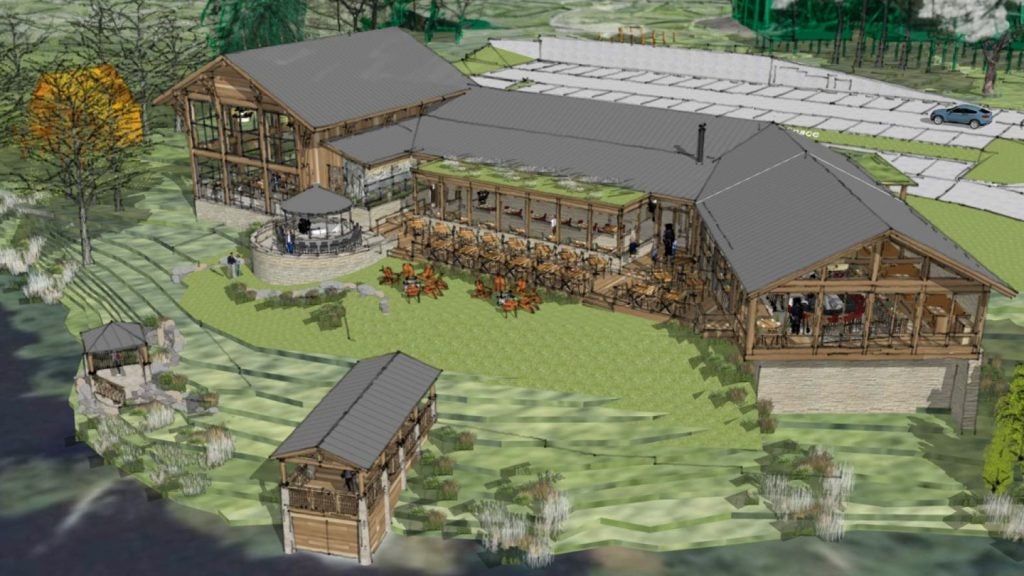
"Completely out of the box" are the words Pureza Champalimaud uses to describe the five-star hotel Oitavos, followed shortly by "bold, sophisticated and tasteful". But what makes it so special?
"It’s very unusual for a hotel to have floor-to-ceiling windows and for every room to have views and a private balcony," she declares. "When we started work on the hotel ten years ago, nobody used metal structures with glass in hotels outside of city centres – and it’s still unusual in Europe today."
Set in a national park on Portugal’s Estoril coast, the Y-shaped steel and glass construction has been designed to embrace – rather than compete with – the ocean and dunes that surround it.
A family affair
An integral part of the design, the hotel’s setting is the 168ha Quinta da Marinha estate, which has been in the Champalimaud family since the 1920s.
Located 20 minutes from Lisbon, it is listed as a UNESCO World Heritage site and is also home to the Oitavos Dunes golf course.
See Also:
The Oitavos is the last piece in the estate, which during the last 90 years has been passed from Champalimaud’s great-grandfather Carlos Montez Champalimaud to her grandfather Carlos Sommer and then to her father Miguel.
How well do you really know your competitors?
Access the most comprehensive Company Profiles on the market, powered by GlobalData. Save hours of research. Gain competitive edge.

Thank you!
Your download email will arrive shortly
Not ready to buy yet? Download a free sample
We are confident about the unique quality of our Company Profiles. However, we want you to make the most beneficial decision for your business, so we offer a free sample that you can download by submitting the below form
By GlobalDataIt is Miguel’s vision that has shaped the hotel’s design and construction, alongside that of Portuguese architect José Amaral Anahory, who has designed several contemporary buildings in Portugal.
"My great-grandfather Carlos Montez first envisioned having a piece of high-end real estate in which tourists could come and stay away from the cities," says Champalimaud. "My grandfather Carlos Sommer expanded much of the estate, but the hotel is my father’s project."
He and José have become ‘accomplices’ in its creation.
"José is one of a kind," enthuses Champalimaud. "He is very well known in Portugal for his work’s functionality and the way in which he utilises space. His designs are modern, but will stand the test of time. He has a brand of his own and is a true designer and artist, not just an architect."
Open opulence at Oitavos
The family see the design of Oitavos as redefining the concept of luxury in the hospitality sector.
"You travel round the world and each time you go to a luxury hotel you usually see too much. It seems like the definition of luxury is ‘more’," explains Champalimaud. "But our philosophy is that comfort and simplicity are the new luxury, so when we talk about comfort, we are talking about freedom. The focal points of our hotel are space and service, and our philosophy as hoteliers is that guests need comfort without too many things."
With all 142 guest rooms boasting a size of at least 64 square metres, private balconies and views of the ocean or golf course, in terms of square metres per client the Oitavos is probably one of the best value for money hotels in the world.
"You have your own space even though you are in a hotel," says Champalimaud. "We don’t want our guests to feel ‘uptight’; we want them to feel at home, comfortable and pampered."
The interior, also designed by Anahory, is a simple and elegant expanse of white painted steel, white furniture and barely-there blues, greys and silvers.
"José chose everything," says Champalimaud. "The building is a concept as a whole, so the direction has to come from someone who knows all the ideas behind it.
"José was trying to achieve the balance between outside and inside. There are very big views of the ocean, sand dunes and pine trees, but they don’t close around the building. It’s almost like a spaceship has landed on the dunes and everywhere you look you see a tree or the sea."
Natural functionality
What also sets the hotel apart from other five-star establishments is its practicality, says Champalimaud.
"Our meeting rooms are spacious with natural light, and we are keen to keep customer segments separate, so there are different entrances for leisure and business guests," she explains. "This is the functional aspect of the design."
Other practical concerns such as energy and water use were also factored into the design. The pool is filled with seawater and warmed with heat from the air conditioning system, the grounds are planted with natural vegetation from the estate, and sand dunes removed during construction have been re-established elsewhere in the hotel grounds.
The preservation of Quinta da Marinha’s native ecosystem is important to the Champalimauds, reflected in the fact that the Oitavos Dunes golf course, which encircles the hotel, is the first in Europe to receive Audubon International’s Gold Signature Sanctuary status for its environmental management. But is the Champalimaud dynasty happy with the outcome?
"It’s not perfect yet and probably never will be in our eyes," says Champalimaud. "But we are continually striving towards achieving that perfection."







